So, is Shopify still a worthwhile option? Much of the reason for asking this question stems from the fact that e-commerce platforms don’t inherently bring traffic; all traffic must be generated through social media, SEO, or paid methods. This can be especially challenging for startups operating on limited budgets.
This article delves into whether Shopify is a worthwhile investment for your business needs. For entrepreneurs, deciding to invest in Shopify hinges on understanding its advantages and disadvantages and carefully evaluating each of its features.
Shopify Pros and Cons
Of course! Shopify is a popular e-commerce platform that allows businesses to create and manage online stores. Here are some pros and cons to consider:
Pros
Easy to use
App store
Scalability
Security
Multi-Channel Selling
Cons
Customization limitations
Data portability
SEO limitations
Taking a deeper look into whether Shopify is worth it
Shopify price
Basic
Price:
- Monthly payment: $30/month
- Annual payment: $29/month
Suitable for: Solo entrepreneurs
Features:
- Transaction fees: 2.9% + $0.3 online
- 10 inventory locations
- 2 additional staff accounts
- Localized global selling (3 markets)
Shopify
Price
- Monthly payment: $105/month
- Monthly payment: $79/month
Suitable for: Companies with a small team
Features:
- Transaction fees: 2.7% + $0.3 online
- 10 inventory locations
- 5 additional staff accounts
- Localized global selling (3 markets)
Advanced
Price
- Monthly payment: $399/month
- Monthly payment: $299/month
Suitable for: Medium and large enterprises
Features:
- Transaction fees: 2.5% + $0.3 online
- 10 inventory locations
- 15 additional staff accounts
- Localized global selling (3 markets) + add markets at $59 per market per month
- Customized reports and analytics
Shopify potential costs
Theme
If you want to enhance the professionalism of your store, besides hiring professionals for renovations, you can also purchase Shopify themes. These themes can quickly improve the appearance and professionalism of your store. Each theme is priced differently.
APP
For apps, there are tools available to help expand your business, each with varying pricing. If you are in the on-demand printing industry, JetPrint is a free option you can choose.
Third-party payment gatewayWhen using a third-party payment gateway, transaction fees apply based on your chosen plan: 2%, 1%, and 0.6% per transaction.
Shopify app store
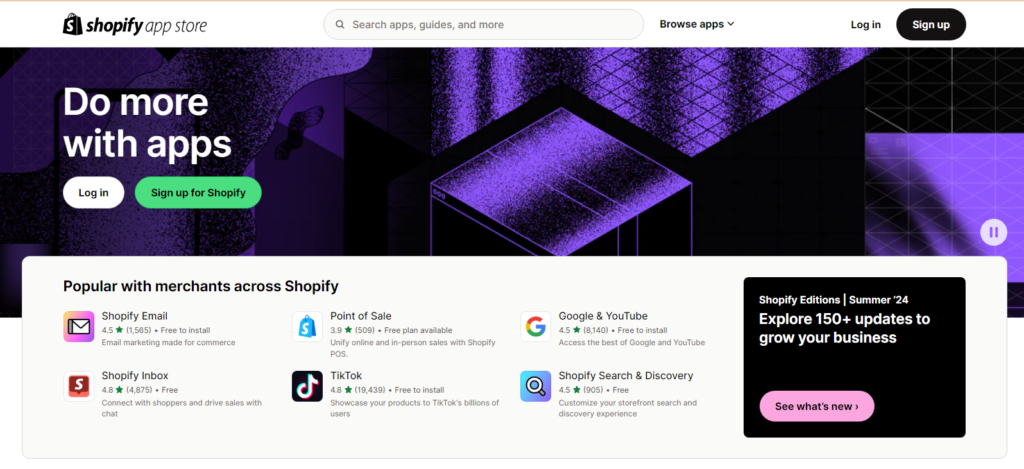
Shopify offers a store with over 8,000 apps, mostly from third-party companies rather than Shopify itself. Unlike WordPress plugins, Shopify apps are typically tailored for e-commerce professionals.
These apps improve different aspects of e-commerce operations like marketing, inventory management, and customer service. You can customize your Shopify store without needing technical expertise.
There are multiple apps available for similar functions. To help you decide, the app store provides ratings, reviews, and detailed descriptions for each application. You can assess and choose the right app based on your own preferences.
Shopify themes
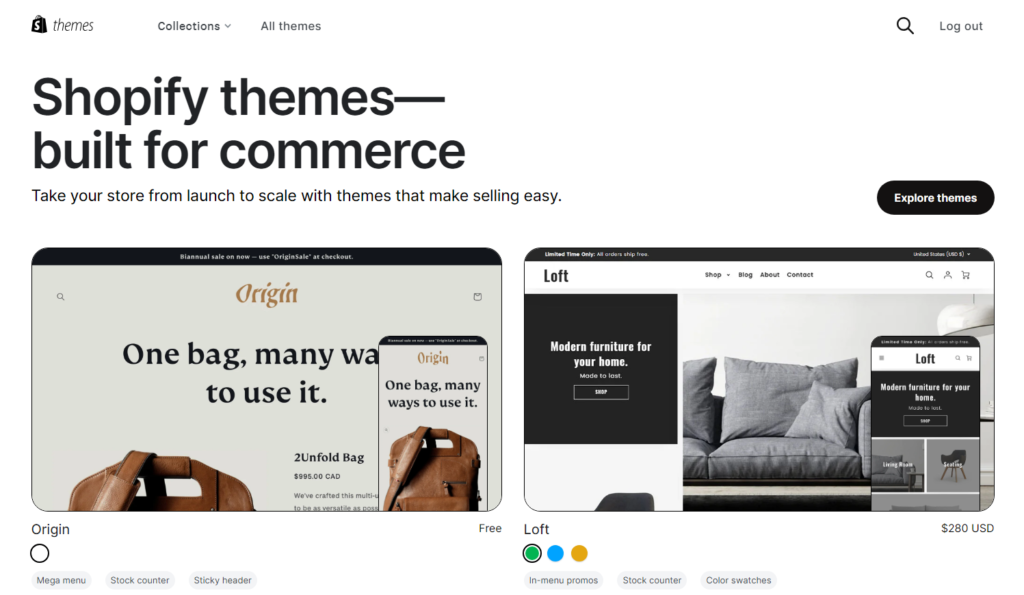
Shopify offers a variety of professional themes, both free and paid, allowing users to select a theme that suits the type of products they sell. This enables businesses to create visually appealing storefronts that align with their brand.
Most Shopify themes are responsive, ensuring optimal display on different devices and screen sizes such as desktops, tablets, and smartphones.
To apply a theme to your store, simply upload the compressed package in Shopify’s theme manager, significantly reducing setup time.
While Shopify themes are designed to be user-friendly and require no coding knowledge to set up and use, store owners with coding skills can further customize their themes by editing HTML, CSS, and Liquid (Shopify’s template language).
Shopify SEO and marketing
Although Shopify offers less flexibility than WordPress for SEO, it still meets the needs of e-commerce professionals.
Link
Shopify enables you to customize product URLs, making them easier for Google to crawl.
Meta Description
The meta description plays a crucial role in SEO by informing users directly about the page’s content and aiding in their decision-making. Shopify allows you to edit the title and meta description displayed at the bottom of each product page you create.
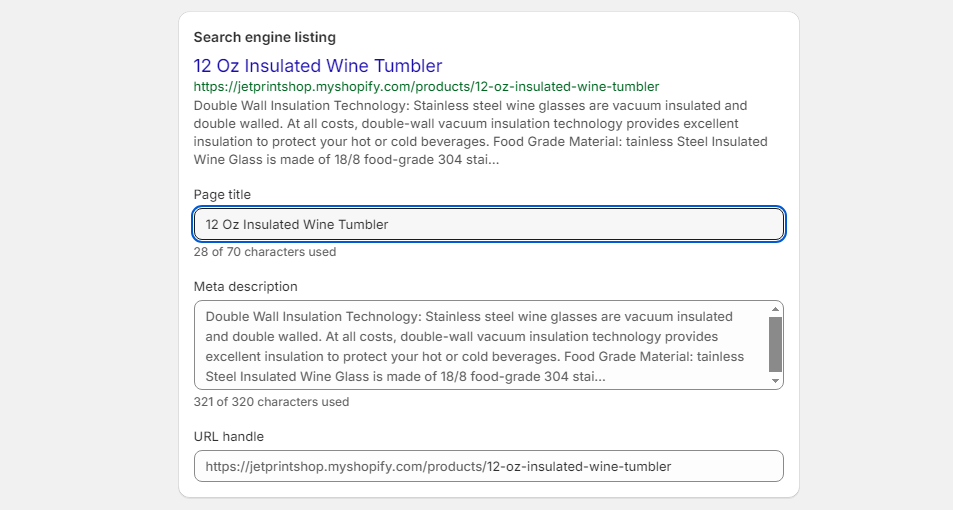
Blog
Blogging is a potent promotional tool that also enhances SEO. Publishing high-quality, valuable blog posts can improve your Google rankings and attract more visitors. Shopify allows you to create a blog in the dashboard, though modifying the blog layout can be challenging.
Shopify payments
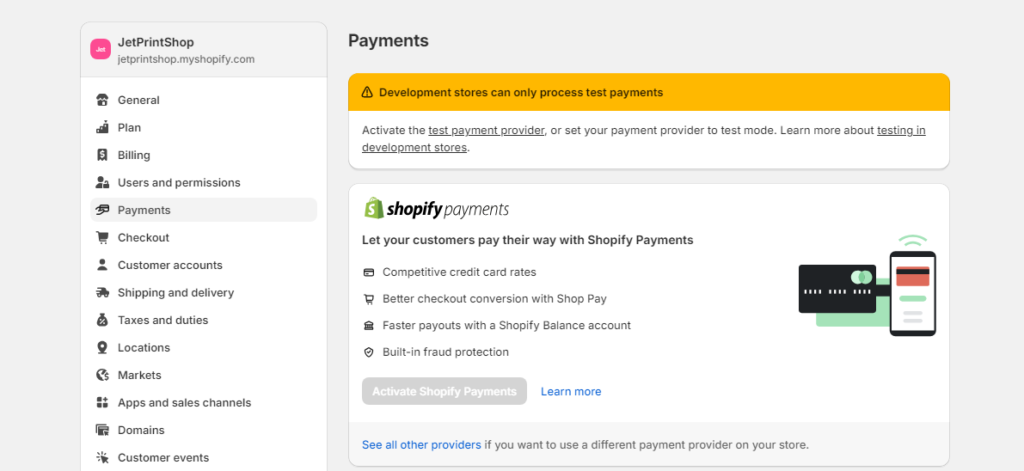
Shopify simplifies the payment process by offering its own payment gateway, Shopify Payments, along with support for various third-party gateways. This flexibility ensures that businesses can accommodate their customers’ preferred payment methods securely.
Shopify Payments is integrated directly into the Shopify platform, making it easier for merchants to accept credit card payments on their online stores without needing a separate third-party provider.
It includes built-in PCI DSS compliance, which relieves merchants from the responsibility of meeting security and compliance standards.
One notable feature is Shop Pay, which streamlines checkout with a simplified one-click process, significantly reducing transaction completion times.
Shopify support
Reliable customer support is crucial for troubleshooting technical issues and maximizing platform usage. Shopify provides 24/7 customer support across various channels such as live chat, email, and phone to ensure assistance is available whenever needed.Additionally, Shopify offers a comprehensive online Help Center that includes articles, guides, tutorials, and FAQs to assist users with every aspect of using Shopify.
Is shopify plus worth it
Shopify Plus is a plan tailored for specific customers and may not be suitable for all Shopify users.
Joining Shopify Plus could be a wise decision under the following conditions:
1. If your annual revenue is at least $1 million. While Shopify Plus includes a high fixed monthly fee, the reduced transaction fees can potentially offset this cost.
2. If you require B2B capabilities. Shopify Plus is specifically designed to cater to B2B needs.
3. If you operate in more than three localized global sales markets. Shopify Plus supports up to 50 localized global sales markets.
Is shopify dropshipping worth it
Many sellers use Shopify to create dropshipping stores. Shopify dropshipping sellers can start their business by using dropshipping apps like JetPrint.
Shopify streamlines the product launch and order fulfillment processes. You can manage your dropshipping business directly in Shopify’s manager without going to a third-party website, which sets it apart from many other website building platforms.
Related article: Is Print on Demand Profitable?
Conclusion
Shopify stands out among many website building tools due to its user-friendly interface, wide range of apps, and strong support. For beginners in e-commerce, Shopify is a good starting point.
However, Shopify also has its drawbacks. If you prefer a highly customized website and have budget constraints, you may need to consider other platforms such as WooCommerce or Etsy.
Related article: Is Dropshipping Worth It?

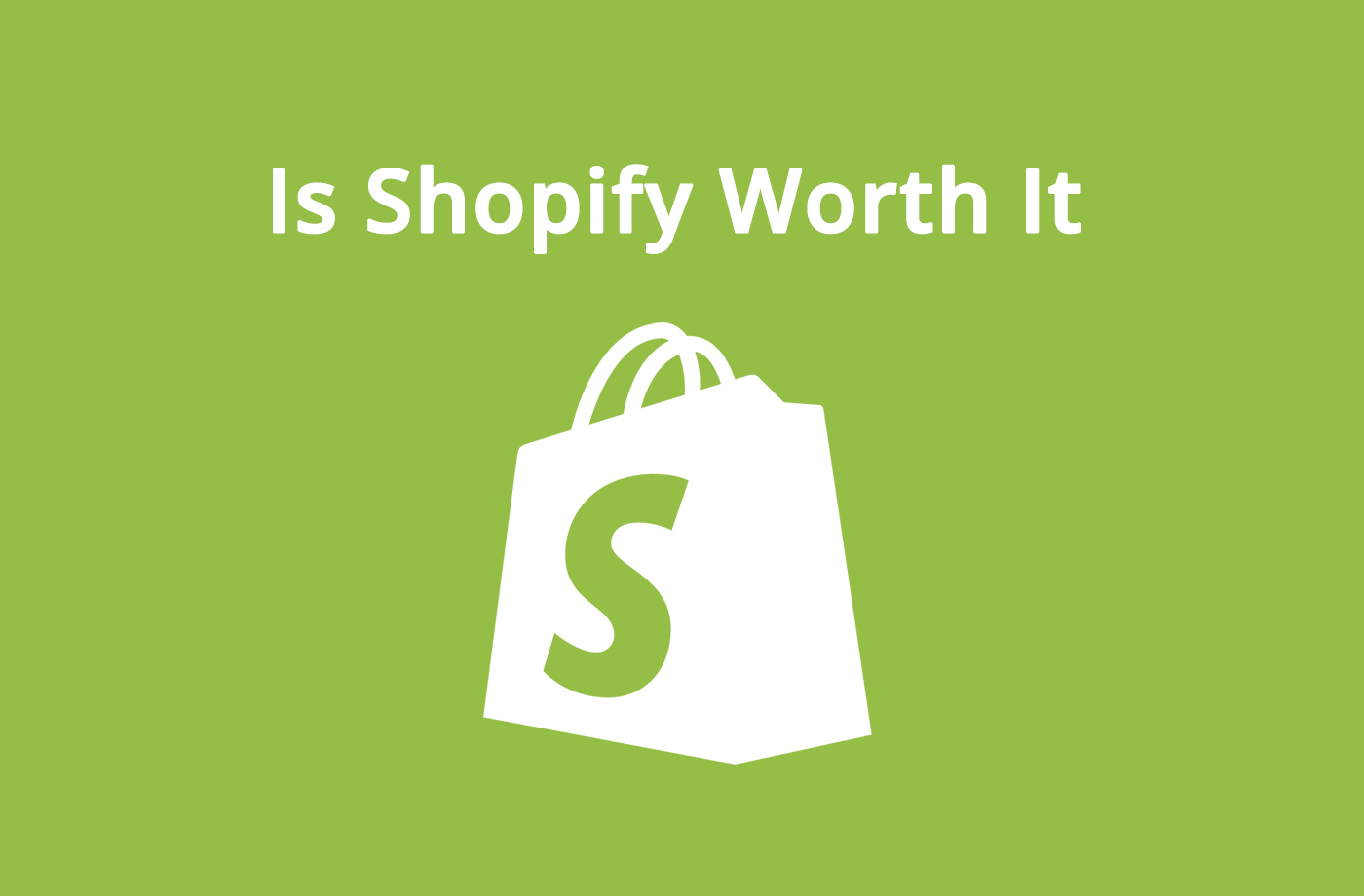
0 Comments